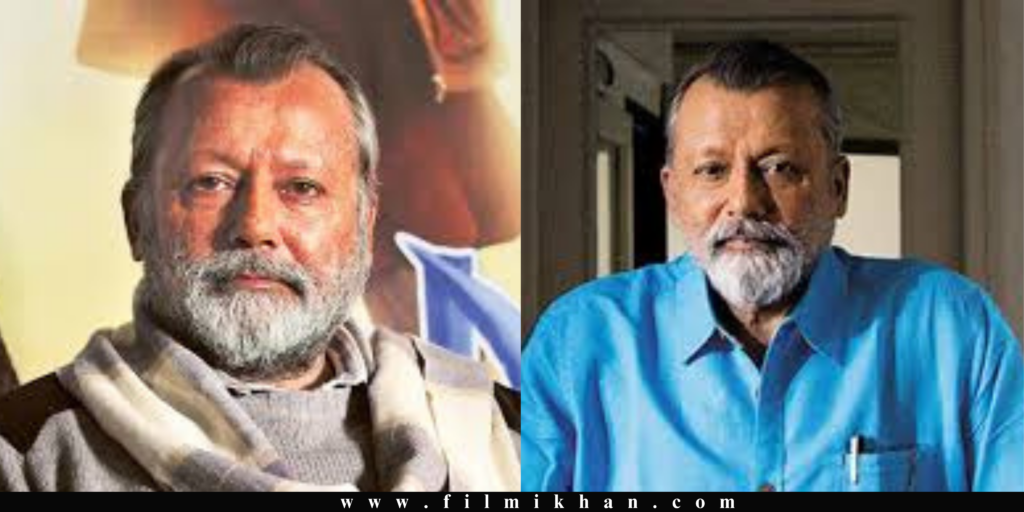
Pankaj Kapoor was born on May 29, 1954, in Ludhiana, Punjab, India. He pursued his early education in Ludhiana and later graduated as a civil engineer from Government College, Ludhiana. However, his passion for acting led him to the prestigious National School of Drama (NSD) in New Delhi, where he honed his craft and graduated with a degree in 1976. His training at NSD provided a strong foundation for his future endeavors in theatre, television, and cinema.
Kapoor’s career began on the stage, where his powerful performances quickly garnered attention. His work with theatre groups in Delhi, such as the iconic NSD Repertory Company, established him as a formidable actor. His dedication to the craft and versatility allowed him to tackle a wide range of roles, from classical plays to contemporary dramas.
Pankaj Kapoor’s transition to television brought him widespread recognition. He became a household name with his role in the critically acclaimed TV series “Karamchand” (1985-1988), where he played a quirky detective. His portrayal of Karamchand, with his trademark carrot munching and witty dialogues, left an indelible mark on Indian television. Kapoor’s ability to infuse humour and depth into his characters made him a beloved figure on the small screen.
Kapoor’s film career is marked by a series of memorable performances that showcase his range and depth as an actor. He made his film debut in “Arohan” (1982) and gained critical acclaim for his role in Richard Attenborough’s “Gandhi” (1982), where he played Mahatma Gandhi’s secretary, Pyarelal.
His nuanced performances in films like Mandi (1983), Mohan Joshi Hazir Ho! (1984), Khamosh (1985), Chameli Ki Shaadi (1986), Ek Ruka Hua Faisla (1986), and Yeh Woh Manzil To Nahin (1987), Raakh (1989), Jaane Bhi Do Yaaro (1983), “Ek Doctor Ki Maut” (1991, for which he was awarded the 1991 National Film Award – Special Jury Award) “Maqbool” (2003), The Blue Umbrella (2005), Dus (2005) and Halla Bol (2007) further cemented his reputation as a versatile and talented actor.
In “Maqbool,” an adaptation of Shakespeare’s “Macbeth” set in the Mumbai underworld, Kapoor’s portrayal of Jahangir Khan (Abbaji) earned him numerous accolades, including the National Film Award for Best Supporting Actor. His ability to bring complexity and authenticity to his roles has made him one of the most respected actors in Indian cinema.
In addition to acting, Pankaj Kapoor has also ventured into direction. He directed the critically acclaimed TV series “Mohandas B.A.L.L.B.” (1998), showcasing his skill behind the camera. Later he directed Mausam (2011) Starring Shahid Kapoor, Sonam Kapoor, Jaspal Bhatti. His foray into direction reflects his deep understanding of storytelling and character development, further enriching his contributions to Indian entertainment.
Pankaj Kapoor’s personal life is closely intertwined with the world of cinema. He was married to Neelima Azeem, with whom he has a son, Shahid Kapoor, a prominent Bollywood actor. Kapoor later married Supriya Pathak, an accomplished actress, and the couple has two children, Sanah Kapoor and Ruhaan Kapoor. The Kapoor family continues to make significant contributions to Indian cinema and theatre.
Throughout his career, Pankaj Kapoor has received numerous awards and honours. He has won three National Film Awards and several Filmfare Awards, highlighting his excellence in acting. His dedication to his craft and his ability to transform into diverse characters have earned him a special place in the hearts of audiences and critics alike.
Pankaj Kapoor’s legacy is defined by his versatility, dedication, and mastery of his craft. His contributions to theatre, television, and cinema have left an indelible impact on Indian entertainment. Whether on stage, screen, or behind the camera, Kapoor’s work continues to inspire and influence generations of actors and filmmakers.
Pankaj Kapoor remains a towering figure in Indian entertainment, celebrated for his remarkable talent and enduring contributions. His journey from theatre to television and cinema exemplifies his versatility and commitment to excellence, making him a true maestro of Indian acting.